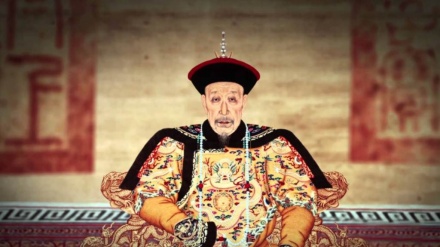Iranian Stories and Fables (134)
Welcome to the program. Stay with us first with an analysis on the precious collection of the One Thousand and One Nights stories and then we take you to the land of stories. In this episode we continue the rest of the story of the Bogus Caliph (Khalife-ye Qollabi in Persian) chosen from the One Thousand and One Nights.
We said that special names are significant as they play roles in the trend of some of the stories of the One Thousand and One Nights. In the previous episode we discussed the similarity between names as well as the relation between these names, their meaning and the destiny of the character.
What we have to take into consideration is that almost all Iranian names have a meaning. This is true for Arabic and Indian names, too. The characters of the One Thousand and One Nights are familiar with the meaning of names and their reaction is based on the meaning of the names.
In one of the stories of the One Thousand and One Nights the heroine of the story chooses a name for herself. Nedhat-o-zZamaan, the beloved daughter of Malek No’maan, who is captured and sold as slave, when a trader asks what her name is, answers: "Which of my names do you want to know?"
The trader then asks: "I was wondering why you have several names."
Then Nedhat-o-zZamaan answers: "Before I was called Qamar-o-zZamaan and now I am called Qossat-o-zZamaan."
Qosseh is Farsi means sorrow and by choosing the name Qossat-o-zZamaan, the girl wants to indicate the hardships she has endured after being kidnapped and sold as slave.
In another story of this collection we read that a slave is rejected by the queen Aabriz and kills the queen out of anger. This slave is called Qadhbaan, Qadhbaan in Arabic means a person who is furious.
In contrast, there is an opposite relationship between the names of the characters and their appearance. One of the stories of the One Thousand and One Nights is the story of a talkative barber called Khamoush which means tacit in Farsi. In another story we read about the atrocities of a black slave called Kafour meaning Camphor in Farsi. Camphor is the symbol of whiteness.
Therefore in the collection of the One Thousand and One Nights stories we face some of the names which are created for bolding the nature of those characters.
Dear listeners here we wrap up our discussion and skip to the next section of our program. In today's episode we continue the rest of the story of the Bogus Caliph. Hope you'll enjoy it.
We said that once upon a time there was a caliph called Haroun al-Rashid who set out from his palace, along with his vizier, Jafar al-Barmaki, and a swordsman in order to see what was happening in the city under his rule. They all took off their royal clothes and dressed like ordinary citizens, in order to stay incognito. They went on and on until they reached a river bank where they spotted a ship. The people said it belonged to the caliph. This made the real caliph and his companions shocked. Therefore they decided to come back to the river the same night to see whom the ship belonged to. But the following night when the trio sailed to the river along with the boatman, the soldiers of the bogus caliph arrested them, but as the trio introduced themselves as traders, they let them in the palace and the bogus caliph served them with different foods and drinks. While they were in the palace they were witness to the fact that the bogus caliph for several times tore up his royal clothes as he heard musicians playing and wore new clothes and when Haroun al-Rashid asked him why he did so, he had answered that it was from the property he had gained by his attempts. He then said that he had recognized Haroun al-Rashid, the caliph, his vizier Ja'far Barmaki and his swordsman Masroor.
And now the rest of the story.
The bogus caliph, addressing Haroun al-Rashid, said:
"Your Majesty as you know I am not a real caliph and I have chosen this fake title for myself so that I could do anything I wish. My real name is Mohammad Ali, son of a great jeweler who has left me much wealth. I also continued my father's job. I just thought about gaining more money and expanding my business. I also practiced singing since I had a good voice. Once I was working in my shop that a woman came in. She was wearing expensive clothes and several servants accompanied her. It was quite clear that she was from a well-to-do family. She dismounted her horse and immediately asked me:
"Are you Mohammad Ali, the jeweler?"
I answered:
"Yes, lady."
She said:
"I want a beautiful necklace full of gems deserving me."
I said:
"I'll show you whatever I have in my shop." And I brought her all beautiful necklaces I had in my shop however she didn't like them.
Finally I brought her a small but expensive necklace which my father had bought for one hundred thousand coins and I never thought I would meet someone in Baghdad who could afford buying the necklace.
As she saw the necklace she said:
"I want this! It's exactly what I was looking for. How much does it cost?"
And I told her that my father had bought it for one 100,000 coins. Then I added:
"But you pay me just 15 coins as it's an honour for us to have you here.”
And the woman said:
"No you don't need to do that. I pay you 100,000 and fifteen coins, but right now I don't have enough money to pay. Come to my house so that I'll give you the money."
And I agreed.
I gave the woman the necklace, locked my store and went after her. We went on and on until we reached a magnificent palace. The woman went in and I waited behind the door. After a few minutes one of the woman's servants came out and said:
"My lady says the money is ready and you can come in to get it."
I went in and I saw the woman with no veil on her face. She was so beautiful. She told me that she had been checking me for a long time. She then said:
"Do you know me?"
I said that I just knew that she was the daughter of a great man.
She then said:
"My name is Donya. I am Ja'far Barmaki's sister. Ja'far is the caliph's vizier."
Hearing these words, Ja'far Barmaki who was sitting next to Haroun al-Rashid got angry and stood up to beat the young man, but Haroun al- Rashid prevented him and told Ja'far:
"Calm down. Let's see what he is saying."
And Ja'far sat down.
The young man continued his story:
And Donya asked me to marry her and I agreed.
AE/RM


